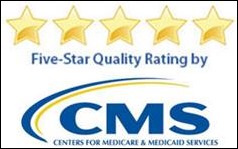EPtalk by Dr. Jayne 7/28/16
I’ve said it before, but those of us that work in the healthcare IT realm have a skewed sense of reality when it comes to participation in federal incentive programs. We tend to think that “everyone’s doing it,” but the reality is that just over half the eligible providers in the US were reflected in the 2015 Meaningful Use attestation data.
With that in mind, I wasn’t surprised that only half of practicing physicians have even heard of MACRA. Based on conversations in various physician lounges, I’d argue that even those who have heard of MACRA see it as a fix to the SGR problem with physician payment rather than another quality and incentive program. The survey seems to confirm this, with 32 percent of respondents only recognizing the name.
Not surprisingly, employed physicians were less aware than independents. However, physicians with large Medicare panels weren’t any more aware than those with smaller panels. Also not surprisingly, 80 percent of physicians prefer traditional fee-for-service arrangements.
Often people jump on this as proof that rich and greedy doctors just want to preserve their cash flow. For many in the trenches, though, it’s no different than any other occupation wanting to be paid for the work that they do. We wouldn’t have many car mechanics if their pay was linked to how well people maintain and drive their cars, and sometimes I think the practice of medicine has become a lot like being a mechanic lately. If nurses were docked part of their shift pay because their patients died or were otherwise noncompliant, you would see an open revolt.
I’ve been doing some long-term work for a health system that requires me to use their laptop and VPN connection. It also requires me to use their desktop support team, which has been a struggle. We open tickets via email and often it takes days for anyone to respond. Once they do respond, it’s often apparent that the technicians haven’t even read the ticket. This is particularly irksome for someone like me who puts lots of screenshots and attachments with their tickets, so that the problem is clear in the hopes someone can resolve it more quickly.
I’ve had some difficulty getting some of their applications to run correctly, since apparently they aren’t supported across browsers. One requires that you use Chrome, another Firefox, an another will only run on Internet Explorer. Doesn’t seem very 21st century to me, but the rest of the organization seems to be OK with it.

I’m always interested to see how other nations handle various healthcare delivery problems, so this headline about Finland’s newborns sleeping in cardboard boxes caught my eye. Finland’s infant mortality rate is less than half the US rate. The box is provided to all pregnant women, with the condition that they have a medical exam during the early months of the pregnancy. It also contains various baby care and clothing items, including those needed for chilly winters. (I’ve never seen a baby balaclava, but apparently there is such a thing.)
Finland offers a lot of other benefits for parents, including a paid 10 month leave and a guarantee that full-time caregivers can return to their jobs within the first three years of the child’s life. At the urging of a non-profit organization that provides boxes in Minnesota, that state’s legislature considered a bill to provide them for low-income women. Seeing a baby asleep in a box reminds me of my grandmother’s story that she slept in a dresser drawer for the first few months of life, having been born early with no nursery preparations. Necessity is definitely the mother of invention, whether your baby sleeps in a box, a basket, or a drawer.

Medicare’s Hospital Compare “star ratings” are now live, and as expected, creating confusion. Now that we’ve had a chance to actually review the data, I agree with most detractors that it doesn’t really help consumers. I plugged in the three excellent hospitals in my area where I would actually have care or send a family member and couldn’t find any appreciable differences despite the fact that they received two, three, and four stars respectively. The two-star hospital is actually ranked top 10 in the nation for dozens of clinical programs, and if I ever had a serious medical problem, that’s where I’d want to be. Small community hospitals in my area scored highly despite the fact that they have no recognizable differentiators.
The star ratings do nothing to help patients evaluate quality of care for specific clinical programs, such as oncology or cardiovascular surgery, where volume and expertise really matter. I searched up quite a few specific hospitals, including every one where I’ve worked. Some that received four or five stars fall on the list of places I would never want a family member to go to for care – but not every family has a physician, so I feel for the patients who actually take the star ratings seriously.
The best part of the ratings is reading the reader comments in my local newspaper:
- This rating system is crap. (from a patient who goes on to explain the life-saving care, research protocol, and ultimately the organ transplant they underwent at a two-star hospital).
- This hospital rating system is misleading, especially when lives depend on it. My husband picked his hospital by ratings and it cost him his life.
- So according to this list, if I have a life-threatening illness, I should seek care at Tiny Community Hospital instead of at Big Medical Center which happens to be affiliated with one of the best medical schools in the world…. Seems legit.
- What does the government know about running and rating hospitals…. They run the worst hospitals in the country. #VA.
- The only government run hospital (VA) in the area didn’t get rated. The irony….
- Until Big Medical Center can get the uninsured patients that swamp their ED to follow up, they will continue to score low. The onus was put on the hospitals to manage their patients, but you can’t manage patients outside the hospital. The same people show up over and over for the same thing. Even with call centers making hundreds of calls a day trying to get patients to go get a test, get an exam, exercise, eat right, check on their mood and behaviors, it still comes down to the people on the other end to do what they’re asked.
- CMS couldn’t find its butt if its hands were glued to it.
That last comment gave me my smile for the day, so I’m going to sign off on that note.
What’s your favorite local comment about star ratings? Post it below, or email me.

Email Dr. Jayne.


"most people just go to Epic" that's a problem because then EPIC becomes a monopoly in healthcare, if it isn't…